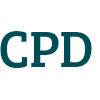Approved training courses
This virtual classroom course enables you to understand your Gas Chromatograph or GC-MS instrument, develop applications, troubleshoot and maintain it.
This course is packed full of examples and practical tips, makes full use of props (instrument parts and consumables which are handled and used for demonstration purposes) and includes Questions and Answers sessions making it the course to attend for lots of useful GC knowledge.
The Complete GC & GC-MS course is made up of the Practical Essentials of GC & GC-MS course which focuses on the theory, followed by the GC & GC-MS Clinic focusing on method development, troubleshooting and maintenance with an introduction to advanced GC & GC-MS techniques. Delegates can choose to attend the whole course, the Practical Essentials of GC & GC-MS, the GC & GC-MS Clinic, or can attend individual modules or days to improve knowledge in a particular area.
The Practical Essentials of GC & GC-MS course covers all the practical theory about gas chromatography and its related techniques, including gas chromatography-mass spectrometry. Topics include:
• An introduction to GC and GC-MS;
• Gases and plumbing from the source to the instrument including different gas types, control and carrier gas modes of operation;
• Sample introduction discussing the inlet parts, hot and cold injections and different injection techniques such as split, splitless, on-column, the various large volume injections and gas sampling valves;
• Analytical columns discussing the theory, types of columns, oven temperature programming;
• GC detectors discussing a variety of universal and specific detectors, including the flame ionisation detector (FID), electron capture detector (ECD), thermal conductivity detector (TCD);
• Mass selective detectors including the theory, their vacuum systems, ionisation techniques, mass filters and detectors;
Data analysis including qualitative and quantitative analysis techniques;
• Sampling techniques including thermal desorption (TD) and pyrolysis (Py); VOC analysis including static & dynamic headspace (SHS & DHS) and purge & trap (P&T); solid-phase extraction techniques including solid-phase extraction (SPE), solid-phase micro-extraction (SPME) and sorptive extraction techniques; liquid-liquid extraction (LLE) techniques; liquid autosamplers and derivatisation.
The GC & GC-MS Clinic course looks at how to choose the GC & GC-MS techniques for an application and set-up the instrument. Topics include:
• Method development and optimisation, the steps in method validation and the benefits of accreditation
• A brief look at advanced techniques to help solve those very tricky applications including Selective Discrimination, Deconvolution, Mass Spectral Interpretation, Multi-Dimensional GC (GC+GC & GCxGC) and Chemometrics.
• How to maintain and troubleshoot the instrument, techniques and method.
At the end of the course the delegate will have in-depth knowledge, from the practical point of view, of gas chromatography and those techniques related to GC and a good understanding of the importance of good chromatography, including how to go about method development and validation. They will know how to select the sampling technique, carrier gas, sample introduction technique, column and GC detector or mass spectrometer and then know how to undertake data analysis. They will also know which areas of the instrument require maintenance and the logical steps in troubleshooting.
This course is taught live in a virtual classroom through interactive, instructor-led training with instrument parts and consumables shown and explained, case studies to work through and chromatograms to troubleshoot. Small group sizes with plenty of opportunities to ask questions through live Q&A.
The Complete GC & GC-MS course is for those who have a basic knowledge of gas chromatography and would like to greatly enhance it, learning the practical theory about all available GC & GC-MS techniques. Beginners should attend the Absolute Basics first.
Additional infoIncludes: electronic copy of the training manual; certificate of attendance.
Online
32 hours
£1675.00 GBP (plus VAT)
Find an approved training course
Use the options below to search through the growing list of chemical sciences training courses that have been approved by the Royal Society of Chemistry.
Courses are approved for CPD purposes only; approval does not imply they will fulfill any regulatory requirements.



